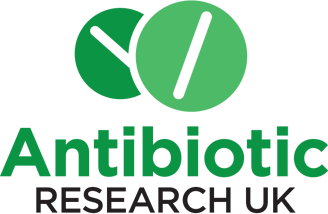
Aberdeen University researchers are collaborating with BSAC to create the first UK Antimicrobial Registry (UKAR). Rebecca Parr shares her inspiration and hopes for this study on the effectiveness of new-to-market antibiotics.
Tell us a bit about yourself?
My name is Rebecca, and I am part of the UK Antimicrobial Registry (UKAR) Study team. I have a background in lab science, where I worked for many years in cancer research. During my PhD project I had the opportunity to work alongside talented anaesthetists at NHS Grampian. This experience opened my eyes to clinical research and inspired me to join the University of Aberdeen Epidemiology group and become part of their UKAR Study team.
Tell us about your study?
The UKAR is a new study funded by the British Society of Antimicrobial Chemotherapy (BSAC) that is being coordinated by the University of Aberdeen’s Epidemiology Group. The UK Antimicrobial Registry is a hospital-based study of new antimicrobials (antibiotics), and our goal is to recruit hospitals from all over the UK that use these antibiotics. The team are currently work with our pilot sites in Manchester, Leicester, Glasgow and Aberdeen.
The UKAR study aims to provide answers to some very important questions:
-
How widely are the antibiotics included in UKAR study being used across the UK?
-
Which patients are being prescribed the antibiotics included in the study?
-
For which infections are these antibiotics being used?
-
How effective are these antibiotics in treating the infections being treated?
-
What side effects do patients receiving the antibiotics experience?
Answers to these questions will help decide which of the antibiotics are the most effective and best able to control the global threat of antimicrobial resistance (AMR).
Two of the eleven antibiotics on the UKAR list, Cefiderocol and Ceftazidime/Avibactam, were designed to combat antibiotic-resistant infections and are part of the NICE de-linkage initiative, which has been developed with the intention of increasing investment in new antimicrobials.
What Inspired you to contact Antibiotic Research UK?
We reached out to Antibiotics Research UK in the hope that we can share details of the ongoing research about treatment of resistant infections with all those living with the effects of AMR. We were inspired by the support and advice that ANTRUK provide to patients and families and their work in tackling the global issue of AMR.
What do you think will happen as a result?
As with all new-to-market medications, the antibiotics included in the study have been through clinical trials, gathering safety and efficacy data from patients who fit into the strict inclusion criteria for these trials. The UKAR Study is looking to collect information on the effectiveness of the antibiotics on all patient groups, including those with existing medical conditions and receiving complex treatment regimens that would be excluded from trials.
Staff at recruited hospitals will be identifying patients who have been prescribed any of the antibiotics included in the registry. If the patient is being treated with an eligible antibiotic and is over 18, the study staff will ask for the patient’s consent to allow them to access to their hospital records and to collect information about their infection and their treatment. In this way we hope to understand how effective the antibiotics are in the real world.
We hope that this increase in understanding will help inform best practice in managing infections and to improve antimicrobial stewardship to protect our antibiotics for future generations
What would you like people to do?
We would like people to be on the look out for the UKAR Study in their local hospital and spread the word to their friends, relatives and colleagues. If you or anyone you know is being treated with antibiotics in hospital, please ask the hospital care team if their site is part of the UKAR study.


